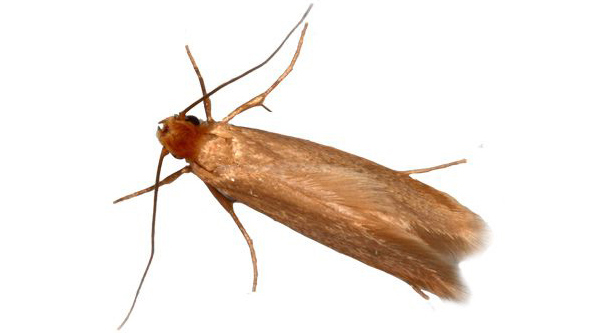Clothes Moths

Origins and distribution
Worldwide (except the tropics) and is moderately common in the UK.
There are a number of textile moths in the UK that attack a wide range of textiles and furnishings such as:
- Case bearing clothes moth (Tinea pellionella)
- Brown house moth (Hofmannophila pseudospretella)
- Tapestry moth (Trichophaga tapetzella)
- White shouldered house moth (Endrosis sarcitrella)
Characteristics
The moth is about 4 – 7 mm in length when at rest with its wings held alongside its body. It has long thread like antennae and is a golden brown in colour.
Breeding
The life cycle from egg to adult is between 3 – 10 months. Adults lay between 40 – 50 eggs deposited in a suitable larval food, such as clothing or in the fibres of a carpet. The eggs hatch in about 1 – 5 weeks depending upon temperature and can take several months to develop.
Habits
Prefer natural fabrics and textiles, particularly in wardrobes or under furniture, where it scuttles away when disturbed. They sometimes enter buildings through open windows and doors and are often associated with bird’s nests. However, they can simply be imported in fabrics, soft furnishings and furniture.
Importance
Not so common as in previous decades, is a pest of museum collections and domestic properties where the larvae attack animal derived fabrics, fur and feather products.
How we control Clothes Moths
Mechanical control by applying a vacuum to floors, paying particular attention under furniture and along wall to floor junctions will assist. Infested material or garments should be washed or disposed of. Residual insecticide will be applied to cracks and crevices of the wardrobe areas, floors and rugs, killing on contact in its wet state and leaving a residual film that contaminates any insects alighting or crawling onto a treated surface. Space spray treatments applied through a ‘fogging’ machine are often used to kill any adults that are flying on the wing. You and pets will need to vacate the premises for a specified period of time before being allowed to return and will be advised on any requirements before any treatment process is undertaken.


















